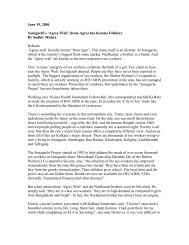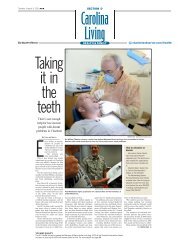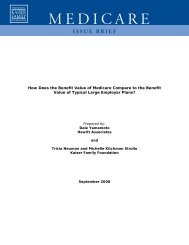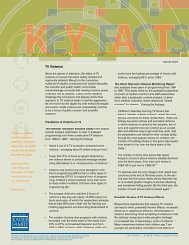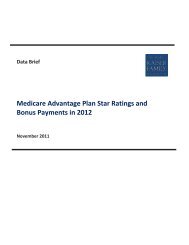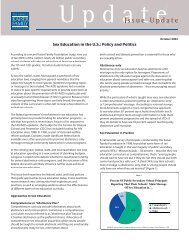HEALTH CARE COSTS: A PRimER - The Henry J. Kaiser Family ...
HEALTH CARE COSTS: A PRimER - The Henry J. Kaiser Family ...
HEALTH CARE COSTS: A PRimER - The Henry J. Kaiser Family ...
You also want an ePaper? Increase the reach of your titles
YUMPU automatically turns print PDFs into web optimized ePapers that Google loves.
TABLE OF CONTENTS<br />
Introduction ....................................................................................................... 1<br />
How Much Does the U.S. Spend on Health and How Has It Changed? ........ 4<br />
In 2010, the U.S. spent $8,402 per person on health care, and 18% of the U.S.<br />
economy was devoted to health care. Health care spending is consuming an<br />
increasing share of economic activity over time and has exceeded economic growth in<br />
every recent decade, though rate of increase in national health spending has declined.<br />
How Does U.S. Health Spending Compare with Other Countries? .............. 7<br />
<strong>The</strong> U.S. spends substantially more on health care than other developed countries. As<br />
of 2009, health spending in the U.S. was about 90% higher than in many other<br />
industrialized countries.<br />
How Does Health Care Spending Vary by Person? ....................................... 8<br />
A small share of people accounts for a significant share of expenses in any year. In<br />
2009, half of all health care spending was used to treat just 5% of the population.<br />
Health care spending also varies by factors such as age and sex. Adults aged 65 and<br />
older have the highest health care spending, averaging $9,744 per person in 2009.<br />
What Do Health Expenditures Pay for and Who Pays for <strong>The</strong>m? ............... 10<br />
Most health care spending (about half) is for care provided by hospitals and physicians.<br />
Private health insurance, Medicare, and Medicaid's shares of total spending have<br />
increased over time, while out-of-pocket spending's share has decreased. Private<br />
funds are the largest sponsor (55%) of total health spending.<br />
How Do Health Care Costs Impact Families and Employers? .................... 17<br />
Families cut back on care and face financial consequences because of health care<br />
costs, especially those with chronic medical conditions. Health insurance premium<br />
increases consistently outpace inflation and the growth in workers’ earnings. Eligibility<br />
standards for public programs such as Medicaid and CHIP do not keep pace with rapid<br />
increases in the cost of health coverage.<br />
Why Are Health Care Costs Growing Faster Than the Economy Overall? 25<br />
Increasing expenditures on new medical technology is a primary factor. <strong>The</strong> U.S.<br />
population is getting older and disease prevalence has changed. Insurance coverage<br />
has increased. Americans pay a lower share of health expenses than they used to.<br />
What Can Be Done to Address Rising Costs? ............................................. 27<br />
Some approaches for dealing with health care costs may reduce the level of spending<br />
but not the rate of growth. Policies focusing on new and expanding technologies may<br />
have success in reducing the rate of growth, but can be difficult to implement. While it<br />
is clear that the ACA will expand coverage to the uninsured, its effects on health care<br />
costs and the rate of increase in health care spending are less certain.<br />
Conclusion ...................................................................................................... 32




